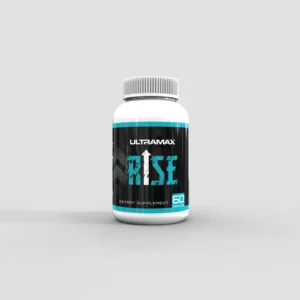
The world-wide Coronavirus pandemic reminds us that all humanity is in danger, not just from the virus itself but also from our human inability to live in balance with the community of life on planet Earth. There are an increasing number of people who feel that humanity may not make it. In his book, Beyond Civilization, Daniel Quinn says simply,
“If we go on as we are, we’re not going to be around for much longer—a few decades, a century at the most. If we are still around a thousand years from now, it will be because we stopped going on as we are.”
In order to understand “big-picture” issues it often takes an historical perspective. Yuval Noah Harari did just that in his book Sapiens: A Brief History of Humankind, who Pulitzer Prize-winning author Jared Diamond acknowledged saying, “Sapiens tackles the biggest questions of history and of the modern world.”
Harari says, “The Agricultural Revolution certainly enlarged the sum total of food at the disposal of humankind, but the extra food did not translate into a better diet or more leisure. Rather, it translated into population explosions and pampered elites.” We are now at a turning point in history and our survival depends on how we understand the legacy of three men:
- Thomas
- Jean-Jacques, and
- Lhamo
The World According to Thomas
Thomas had an inauspicious introduction to the world. He was born prematurely when his mother learned that the Spanish Armada would soon be invading England. He later reported that “my mother gave birth to twins: myself and fear.” Things did not improve following his birth. His father was a quick-tempered vicar who, disgraced after engaging in a brawl at his own church, disappeared, abandoning Thomas, his two siblings, and his wife.
Thomas had a lonely childhood. At age four, he was sent to a church school and later to private schools. He eventually attended Oxford University. Like many abandoned children, he learned to survive on his own. As an adult, he devoted his life to philosophy. Thomas was one of the first philosophers to argue that if we really want to know ourselves, we have to understand how our ancestors lived. A worthy ambition for a philosopher.
Thomas wanted to understand our hunter-gatherer past and what human nature was like back then and he thought he knew how to find out. He wrote:
“Read thyself. Dissect your own fears and emotions and you will thereby read and know what are the thoughts and passions of all other men upon the like occasions.”
When he looked inward and applied what he saw to our human origins he concluded that in the past humans were free and could do whatever they pleased, and he concluded, that the consequences were horrible. Human life in that state of nature was, in his words, solitary, poor, nasty, brutish, and short. His reasoning was simple: Human beings are driven by fear—fear of others, fear of death. We long for safety and desire power. The result, according to Thomas was “a condition of war of all against all.” Not a very pretty prospect for humankind.
We are living in a world where many, particularly, men have grown up with absent or abusive fathers and many see the world and human nature through that lens.
The World According to Jean-Jacques
Jean-Jacques also had a difficult early life and suffered greatly. “I was born almost dying and they had little hope of saving me,” he recalled. His mother died of puerperal fever nine days after his birth, which he later described as “the first of my many misfortunes.” He and his older brother François were brought up by their father and a paternal aunt.
Nevertheless, he remembers many happy memories of his childhood. But his social world was restricted by his aunt’s fear for his safety. He was not allowed to play with children his own age and spent a lot of his time with adults or alone. His father taught him to read and helped him to appreciate the countryside. He increasingly turned to nature for solace and companionship.
Growing up, Jean-Jacques had few friends, but an important one was Denis Diderot, a poor philosopher who had been arrested for cracking an unfortunate joke about the mistress of a government minister. Denis told Jean-Jacques about an essay contest that might earn him a little recognition and perhaps some money.
Thinking of his friend Denis, Jean-Jacques saw the human condition in an instant of enlightenment. He realized that modern civilization is not a blessing, but a curse. He sees that his friend, and all other humans “are naturally good, and it is from the modern institutions alone that men become wicked.” He won the essay contest and went on to become one of the most influenced philosophers in the world.
The World According to Lhamo
Lhamo, like many in our world, grew up in difficult circumstances and had an abuse father who loved him, but had an explosive temper. He was born in the small village of Taktser, located in the province of Amdo. His full name, Lhamo Thondup, literally means “Wish-fulfilling Goddess.” The village stood on a hill overlooking a broad valley. Its pastures had not been settled or farmed for long, only grazed by nomads. The reason for this was the unpredictability of the weather in that area. Lhamo recalled,
“During my early childhood, my family was one of twenty or so making a precarious living from the land there.”
His father was a man of medium height with a very quick temper. “I remember pulling at his moustache once and being hit hard for my trouble,” recalled Lhamo. “Yet he was a kind man, too, and he never bore grudges.” His mother gave birth to sixteen children, of whom seven survived. “My mother was undoubtedly one of the kindest people I have ever known,” he remembers with a smile.
When Lhamo was two years old, a search party was sent out by the government to find him and his life changed forever. By the time I met Lhamo Thondup in 1989 at a conference shortly after he had won the Nobel Peace Prize, he was known as His Holiness, the 14th Dalai Lama of Tibet.
The Future of Humanity Will Be Determined by Which View of Human Nature We Follow
Thomas Hobbes, who lived between 1588-1679, still influences our view of human nature today. His belief that humans are driven by fear, are in perpetual conflict, and only a society led by a Leviathan, or powerful male ruler, can keep humanity in line.
Jean-Jacques Rousseau lived between 1712-1778 and developed a philosophy that was the polar opposite of Hobbes. He believed that our peaceful and positive past as hunter-gatherers, meant humans were basically good and it was modern society that was destructive. He longed to return to the past which he saw through rose-colored glasses.
Lhamo Thondup, who grew up to become the Dalai Lama was born in 1935 and he celebrated his 85th birthday on July 6, 2020. He is a totally modern man, versed in science, but with an ancient wisdom based on love and compassion for all living things.
All three men faced, what today we would call traumatic childhoods, but each grew up to espouse different paths for humanity. It seems, we are at a turning point in human history. Which man offers the best and brightest future for humankind? Our views of humanity don’t depend so much on what happened to us as children, but what we do with what happened.
I don’t know about you, but I’m going with Lhamo. Here are a few things he has said that give me hope for our future:
- “Compassion is the radicalism of our time.”
- “It is under the greatest adversity that there exists the greatest potential for doing good, both for oneself and others.”
- “We need to learn to want what we have, not to have what we want, in order to get stable and steady happiness.”
- “If you think you are too small to make a difference, try sleeping with a mosquito.”
I look forward to your comments. If you’d like to read more articles, please visit me here.
The post The Three Men Who Will Determine The Survival Or Demise of Humanity appeared first on MenAlive.
-
Stronger Erections
Havasu Nutrition L-Arginine | Endurance and Circulation Booster with Nitric Oxide, 60 Caps
$22.99




